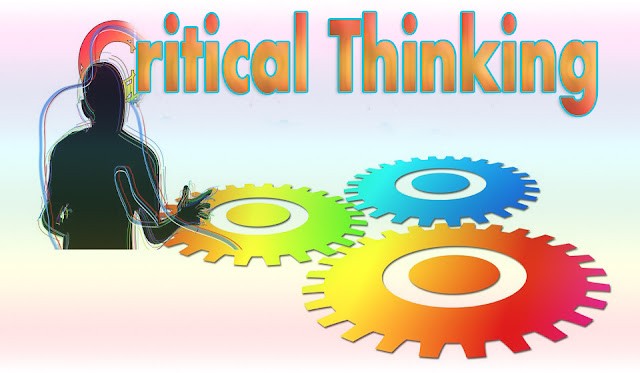What is critical thinking and why is it so important today
What is critical thinking
Critical thinking is the ability to analyze the way you think and present evidence for your ideas, rather than simply accepting your personal reasoning as sufficient proof.
Critical Thinking is, in short, self-directed, self-disciplined, self-monitored, and self-corrective thinking. Good critical thinkers can draw reasonable conclusions from a set of information and discriminate between useful and less useful details to solve a problem or make a decision.
Critical thinking is not a matter of accumulating information. A person with a good memory and who knows a lot of facts is not necessarily good at critical thinking. Critical Thinking skills teach a variety of skills that can be applied to any situation in life that calls for reflection, analysis and planning.
From solving problems in class assignments to facing real world situations, Critical Thinking is a valuable skill for students to master. It can also enhance their academic performance. Researcher Jane Qinjuan Zhang writes that critical thinking enables students to assess their learning styles, strengths and weaknesses, and allows them to take ownership of their education.
If you work in education, research, finance, management or the legal profession, then critical thinking is obviously important. Being able to think well and solve problems systematically is an asset for any career. You can also use critical thinking to free yourself from cognitive biases, negative thinking, and limiting beliefs that are holding you back in any area of your life.
Benefits of critical thinking
A well-cultivated critical thinker:
- raises vital questions and problems, formulating them clearly and precisely;
- gathers and assesses relevant information, using abstract ideas to interpret it effectively comes to well-reasoned conclusions and solutions, testing them against relevant criteria and standards;
- thinks open-mindedly within alternative systems of thought, recognizing and assessing, as need be, their assumptions, implications, and practical consequences;
- Knows how to prioritize time and resources by systematically analyzing what is useful and what is not;
- communicates effectively with others in figuring out solutions to complex problems;
- understands the experiences & views of others and enhance the ability to work with different people.
Why critical chinking is so important today
We live in a world of accelerating change. New industries are constantly being born and old ones are becoming obsolete. It's true that automation could overtake many jobs in the future. To ensure you're not replaceable by a machine, you need strong critical thinking skills.
A study by Ball State University estimates that 5 million U.S. factory jobs have been lost to automation since 2000. A new McKinsey report warns that machines and AI could destroy another 73 million U.S. jobs by 2030, displacing up to 800 million workers worldwide.
According to Nick van Dam, global chief learning officer at McKinsey & Co., this is the best time for people who have the right skills and right education because there are tremendous opportunities. It’s also the worst time in history for people with ordinary skills and education.
Citing World Economic Forum research, van Dam said the Top 10 skills that will be in demand in the near future are:
- Complex problem-solving
- Critical thinking
- Creativity
- People management
- Coordinating with others
- Emotional intelligence
- Judgment and decision-making
- Service orientation
- Negotiation
- Cognitive flexibility





Useful information.
ReplyDeleteLearning keeps us alive.
Thank you Mr. Shobi Imran
I am pleased to hear that, Thanks for reading Ratnagiri Sir
DeleteGreat
ReplyDeleteThanks
DeleteIt’s great and useful
ReplyDeleteThanks for reading!
ReplyDelete